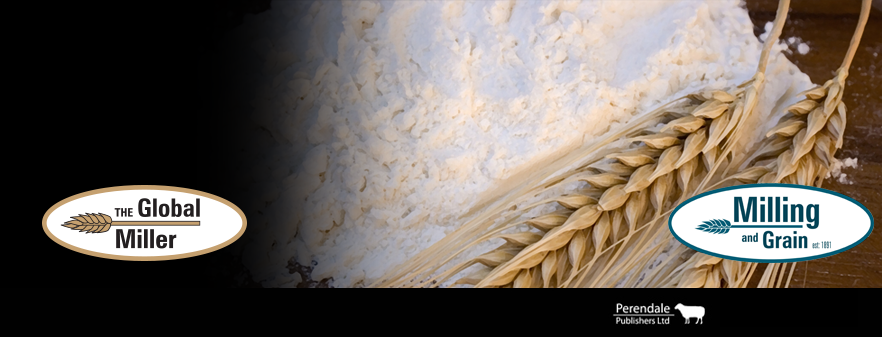by
Roger Gilbert, Milling and Grain reporting from IPPE 2019
When there’s serious competition companies make increased investments in research and development and go on to further their commitment to product development in an effort to ensure customers achieve the best outcomes and return on investment.
As a result of this process everyone benefits from these commercial-driven initiatives.
That was clear at this year’s IPPE 2019 in Georgia Congress Centre, Atlanta, USA where several companies provided clear evidence of recent investments being made in managing livestock and poultry health.
A key driver is the need to reduce, if not eliminate, the inclusion of antibiotics in every-day feed production systems.
Evonik is one such company supporting the health status of livestock. It has over 120 researches close to its headquarters in Essen, Germany.
In fact, seven years ago it switched emphasis from a focus on nutritional amino acids only to understanding and managing ‘gut health,’ which has opened the way for “new opportunities for product development,” says Professor Dr Stefan Pelzer who joined Evonik as its director of research and development in its Animal Nutrition Innovation Management section at that time.
He told Milling and Grain that by 2030 “we will have to provide food for 8.5 billion people who will be consuming some 45kg of meat per capita per year.” That compares to just 41kg/capita in 2011. Land resource per head will fall to 0.22ha/person from 0.25ha in 2011, he adds.
And to meet that food need, chicken will remain the meat of choice as its not associated with religious taboos, is robust and relatively easy to farm and is highly productive and cost efficient.
Chicken consumption is expected to exceed pork consumption by the end of next year, according to the FAO.
It’s not just food security that is driving research developments at Evonik, but also the need to reduce or eliminate the in-feed use of antibiotics. And the drive to reduce the use of antibiotics is not coming from official government policy it says, but from feed customers responding to growing consumer awareness and the public debate taking place around the way antibiotics are being prescribed for human therapy as well, he adds.
Read more HERE.
When there’s serious competition companies make increased investments in research and development and go on to further their commitment to product development in an effort to ensure customers achieve the best outcomes and return on investment.
As a result of this process everyone benefits from these commercial-driven initiatives.
That was clear at this year’s IPPE 2019 in Georgia Congress Centre, Atlanta, USA where several companies provided clear evidence of recent investments being made in managing livestock and poultry health.
A key driver is the need to reduce, if not eliminate, the inclusion of antibiotics in every-day feed production systems.
Evonik is one such company supporting the health status of livestock. It has over 120 researches close to its headquarters in Essen, Germany.
In fact, seven years ago it switched emphasis from a focus on nutritional amino acids only to understanding and managing ‘gut health,’ which has opened the way for “new opportunities for product development,” says Professor Dr Stefan Pelzer who joined Evonik as its director of research and development in its Animal Nutrition Innovation Management section at that time.
He told Milling and Grain that by 2030 “we will have to provide food for 8.5 billion people who will be consuming some 45kg of meat per capita per year.” That compares to just 41kg/capita in 2011. Land resource per head will fall to 0.22ha/person from 0.25ha in 2011, he adds.
And to meet that food need, chicken will remain the meat of choice as its not associated with religious taboos, is robust and relatively easy to farm and is highly productive and cost efficient.
Chicken consumption is expected to exceed pork consumption by the end of next year, according to the FAO.
It’s not just food security that is driving research developments at Evonik, but also the need to reduce or eliminate the in-feed use of antibiotics. And the drive to reduce the use of antibiotics is not coming from official government policy it says, but from feed customers responding to growing consumer awareness and the public debate taking place around the way antibiotics are being prescribed for human therapy as well, he adds.
Read more HERE.
The Global Miller
This blog is maintained by The Global Miller staff and is supported by the magazine Milling and Grain
which is published by Perendale Publishers Limited.
For additional daily news from milling around the world: global-milling.com



















